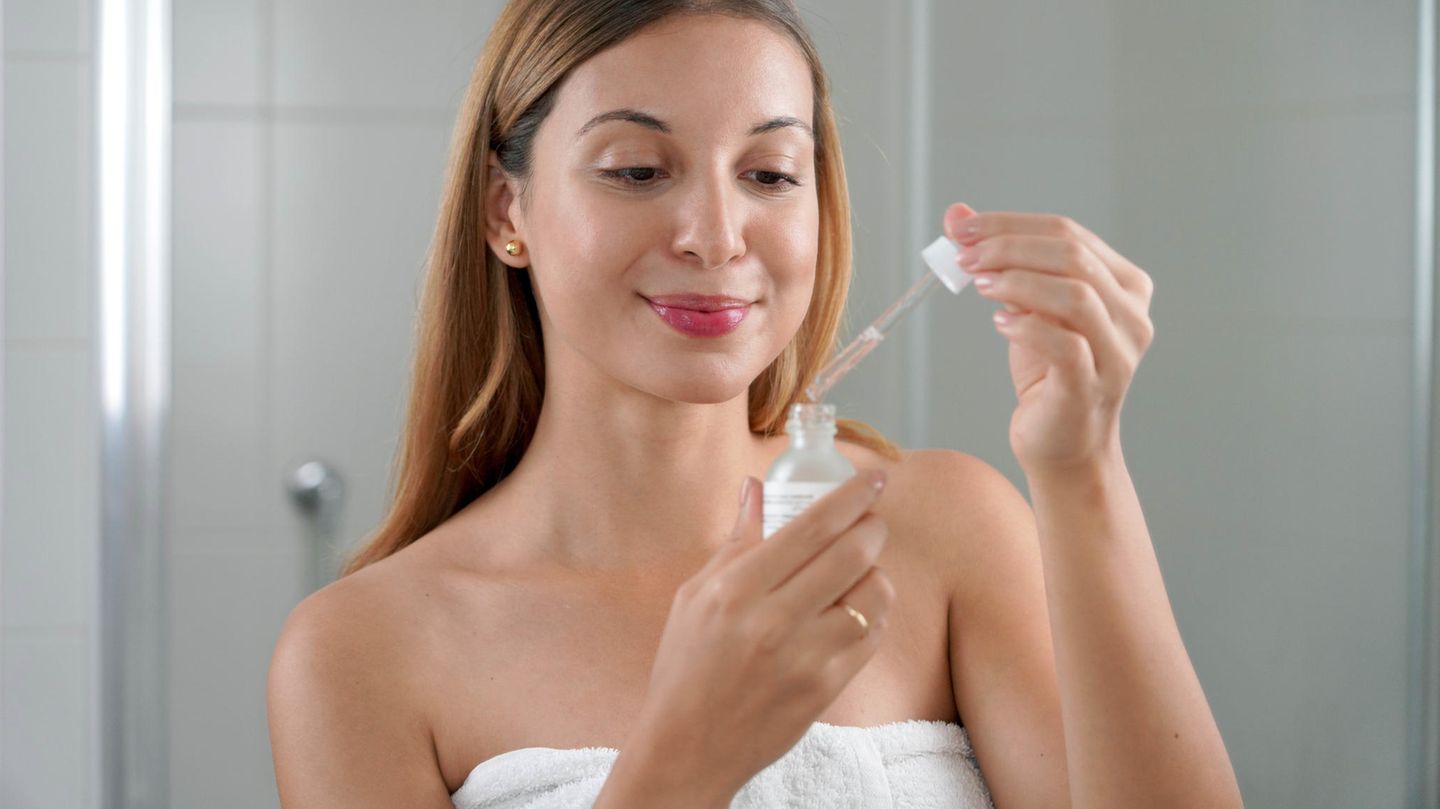intimate hygiene
7 tips for a healthy intimate zone

© Drobot Dean / Adobe Stock
Proper intimate hygiene is important for our general well-being. However, it is easy to overdo it when it comes to personal hygiene. Here we tell you what is important for healthy intimate hygiene for women.
We wash our hands, put lotion on our faces and brush our teeth. But the intimate zone is often neglected when it comes to care – the vulva is quickly sprayed off in the shower and as soon as we notice a strange smell, we panic. The right intimate hygiene is not that difficult – because often less is more!
Intimate hygiene: A healthy vaginal flora is the be-all and end-all
We often don’t think about intimate hygiene until it’s too late. You can usually recognize infections in the intimate region by itching, changed discharge or an unpleasant smell. However, most vaginal infections and irritations today are not due to a lack of intimate hygiene, but to being too thorough. The main culprits are perfumed shower and bath products, which destroy the natural acid protection of the vagina and thus open the door to harmful bacteria and fungi.
Gynaecologists simply recommend clear water for cleaning the intimate area. But you can do more to keep the vaginal environment and thus the natural protective function in good shape. There are also a few things to consider when it comes to intimate shaving. Here are five things to consider in your future intimate hygiene routine to avoid intimate problems.
1st washing day is every day
A lot doesn’t always help a lot. It is sufficient to wash the intimate area once a day with lukewarm water. The vagina actually cleans itself, so just limit washing to the outer part of the intimate area, the vulva. You should stay away from vaginal douches completely so as not to disturb the natural vaginal environment. If you’re using a washcloth, it’s best to use a cotton one and make sure you only use it once. A wet washcloth is the perfect breeding ground for bacteria, so you should wash it regularly at 60 degrees or more to kill the germs. Don’t forget: After cleaning, dry with a clean towel – it is important not to rub, but to dab to avoid irritation.
2. Candy? Dear sour!
The intimate skin is populated with natural bacteria, mainly different types of lactic acid bacteria. This bacterial environment ensures an acidic pH value of 3.8 to 4.4 in the vagina and thus protects against infections. device this acid mantle of the skin out of balance, unpleasant symptoms such as discolored discharge can occur. Even after antibiotic treatment or during the period, the pH value of the vagina can fluctuate and the mucous membrane can be irritated. If you don’t want to do without body wash, make sure to special intimate care products that are adjusted to the pH value of the vagina and not to use alkaline soaps.
3. A breath of fresh air for the intimate area
The intimate area likes fresh air. Synthetic fabrics and clothing that is too tight promote sweat production, which is good for unwanted bacteria. Briefs made of cotton or other skin-friendly fabrics are ideal for everyday use. In addition, unscented panty liners can help absorb unwanted liquid. Strings are not advisable, they often rub germs from the anal region to the vagina. If you still like to wear them, wash the thongs at temperatures above 60 degrees or use a hygiene detergent at lower temperatures.
4. After sex is before washing
Very important after sex: Off to the toilet! In this way, potential pathogens that could have gotten into the vagina through the penis or by hand can be flushed out again when you go to the toilet. When wiping, you should make sure to always wipe from front to back so that no intestinal bacteria or stool residue can get into the vagina from the anal area. In addition, sweat and body fluids accumulate moisture in the intimate area, which can promote the growth of bacteria. Tip for intimate hygiene: Leave your underwear off after sex.
5. Fragrances? No thank you!
If the vagina should then smell strange, perfume will definitely not help! This can lead to unwanted intimate problems and irritation. Fragrances such as citral or farnesol trigger allergies or irritations in many people and are often included in perfumed body washes or sprays. When cleaning the vulva, it is better to use non-irritating intimate wash lotions and consult a gynecologist if the symptoms persist. Perfumed panty liners or pads can also unbalance the vaginal flora.
6. Intimate hygiene during menopause
During the menopause, the ovaries continue to decrease in function and the woman’s estrogen levels drop. The tissue in the intimate area also changes – With vaginal atrophy, the tissues of the labia, clitoris, and vagina thin and the risk of injury increases. Vaginal itching, painful intercourse and vaginal dryness can also occur. Then moisturizing Femigels or creams with the active ingredients glycerin or hyaluronic acid are beneficial and soothe the mucous membrane. Lubricating gel can help during sex to lubricate the vagina and prevent pain.
7. This is how the intimate shave works
Before intimate shaving, it is important that the hair is nice and soft, because the intimate skin is sensitive. Oil or shaving foam, for example, can help here, but the same applies here: The products should be specially made for the intimate area so that skin irritation and problems do not occur. Shaving wet in the shower and in the direction your hair grows is the best way to avoid ingrown stubble. It also helps to use a fresh blade that cuts cleanly. After shaving, you can then apply a nourishing intimate balm to prevent pimples and redness. However, you should not over-care for the vagina either.
Other causes of intimate problems
Incorrect care or a lack of personal hygiene are not always the cause of infections or unpleasant odours. The following causes can also be the reason for the uncomfortable feeling in the intimate zone:
- hormonal fluctuations
- the menstrual cycle
- consumption of alcohol
- poor diet
- intercourse
- A forgotten tampon
- too little water intake
- heavy sweating
In any case, if there is a noticeable vaginal odor or a changed discharge, the gynecologist should be consulted and the cause clarified – Treatment with lactic acid or antibiotics may be prescribed for bacterial vaginosis or vaginal thrush. In the case of dryness, non-irritating moisturizing creams or natural hydrosols are recommended.
Sources





